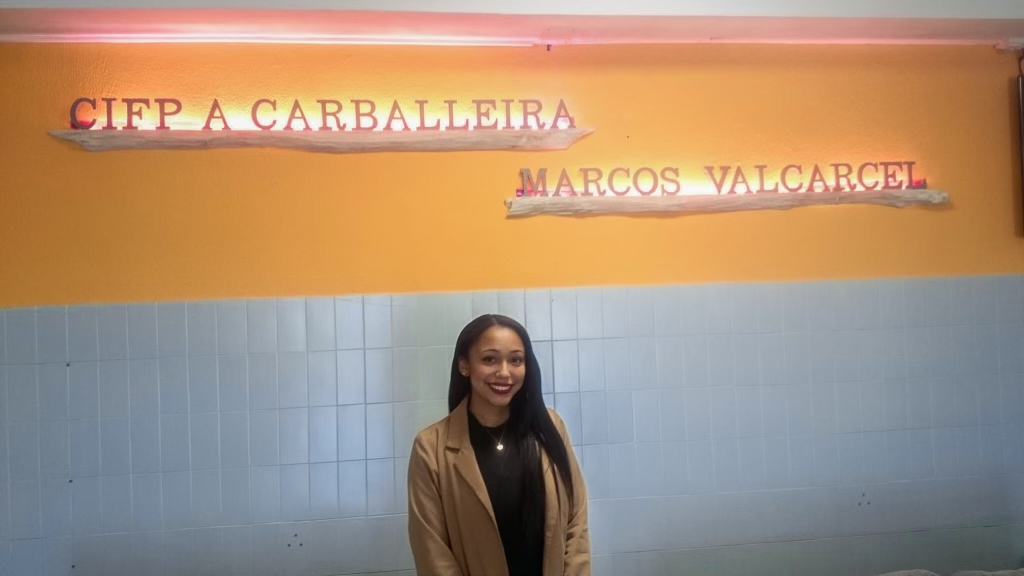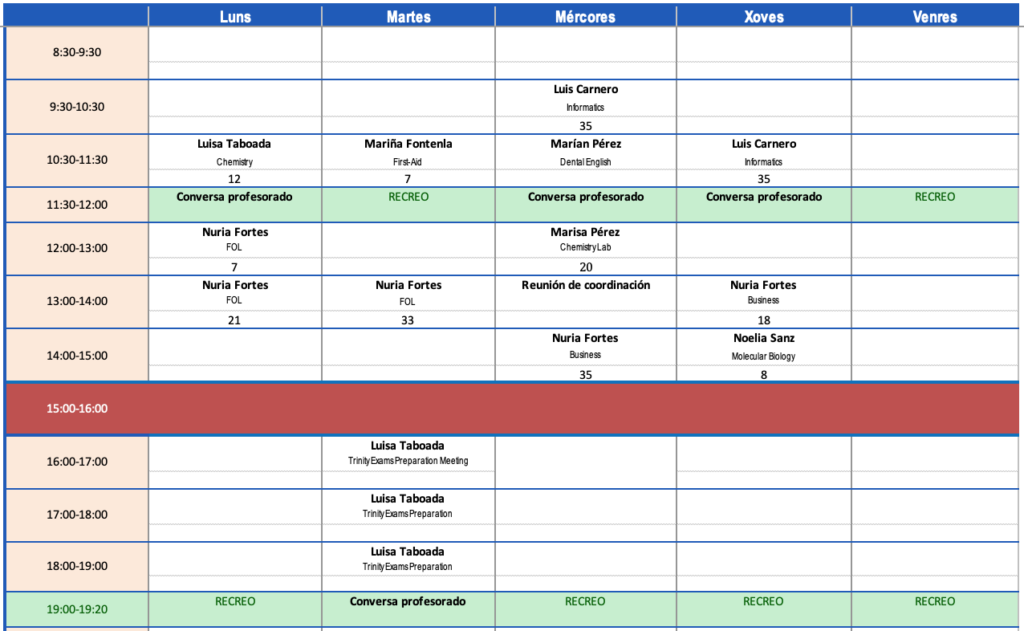As a Fulbright English Teaching Assistant (ETA), my job is to help the teachers and students of my host school practice their English. This can be by teaching classes in English, leading speaking activities, or having conversation groups. Being an ETA can look different for everyone. Some people teach art to elementary school students, while others can be teaching English at a University! Here’s my experience, so you can know what to expect from being an ETA!

My English Teaching Assistant Schedule
For me, I don’t teach “English” per se with grammar rules or anything like that, which was really surprising to me at first. Instead, I teach content courses in English. My classes are Chemistry, Formación y Orientación Laboral (FOL), First Aid, Informatics, Chemistry Lab, Business, and Molecular Biology. Most of these classes are science-based because I work at a vocational school, so my degree in Biology really helps.
In addition to those classes, I also teach Trinity prep on Tuesday afternoons. There, I help the students prepare for the Trinity Exam, which is an English test to assess the speaking, listening, and writing abilities of the students. I also lead a conversation group for the other teachers to practice speaking English. They are always very excited to practice, share funny stories, and drink coffee together!
Between all of those classes, my teaching schedule usually looks something like this ⬇️

Preparing for Class
Generally, I spend the weekend preparing for my classes because I don’t like coming into the week feeling unprepared. For some classes, I would work with the teachers so that we could present together. Those classes were the easiest to prepare for because I would just present what the teachers wanted me to or I would create worksheets. For other classes, I would come up with content entirely on my own, which was a bit more challenging.
For each class, I had to present for a full hour, so I would normally spend about 30 minutes lecturing and the rest of the class doing an activity to engage the students. They really enjoyed games like Jeopardy, bingo, and Kahoot! to review course material.
Outside of Teaching
Outside of school, I take Spanish classes every Monday afternoon. Fulbright lets us use some of our side project money for language classes, which really makes them more affordable. These were super important because with COVID restrictions it was normally really difficult to find time to practice with native speakers.
I also spent my extra time teaching dental-English classes to local dental-hygiene students, which was really exciting. I took an online dental assisting course (which also took up a lot of my time outside of class), and teaching the dental students made the content so much more interesting. At first, I was so scared to start the course at first because I wasn’t a “real” dental student yet, but they were really so fun to work with.
On the weekends, I love spending time with my friends and traveling when I can. At the beginning of the grant, my friends and I just spent a lot of time ordering delivery from new places and watching Catfished. But once restrictions started to lift, we were able to travel around Galicia! Traveling was really a major part of my cultural experience because engaging with locals wasn’t very feasible with the pandemic.
You can read about my favorite travel experience to Portugal here!
Conclusion
So, that’s my life! The pandemic really made this Fulbright grant year very different than other years, but there’s always something interesting happening. I hope this helped shed a little light on the life of a Fulbright English Teaching Assistant! To see more of my experience, check out my other Fulbright posts here!
Disclaimer: This is not an official Department of State publication. The views and information presented are my own and do not represent the Fulbright U.S. Student Program, ECA, the Post, or the Fulbright Commission, or the host country’s government or institutions.

